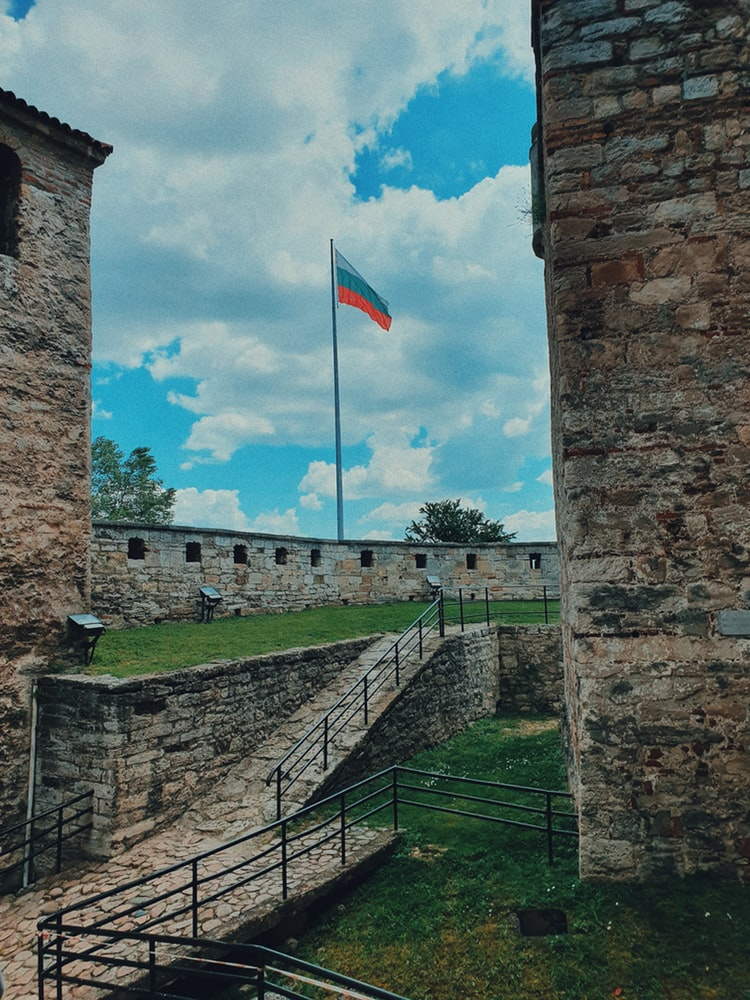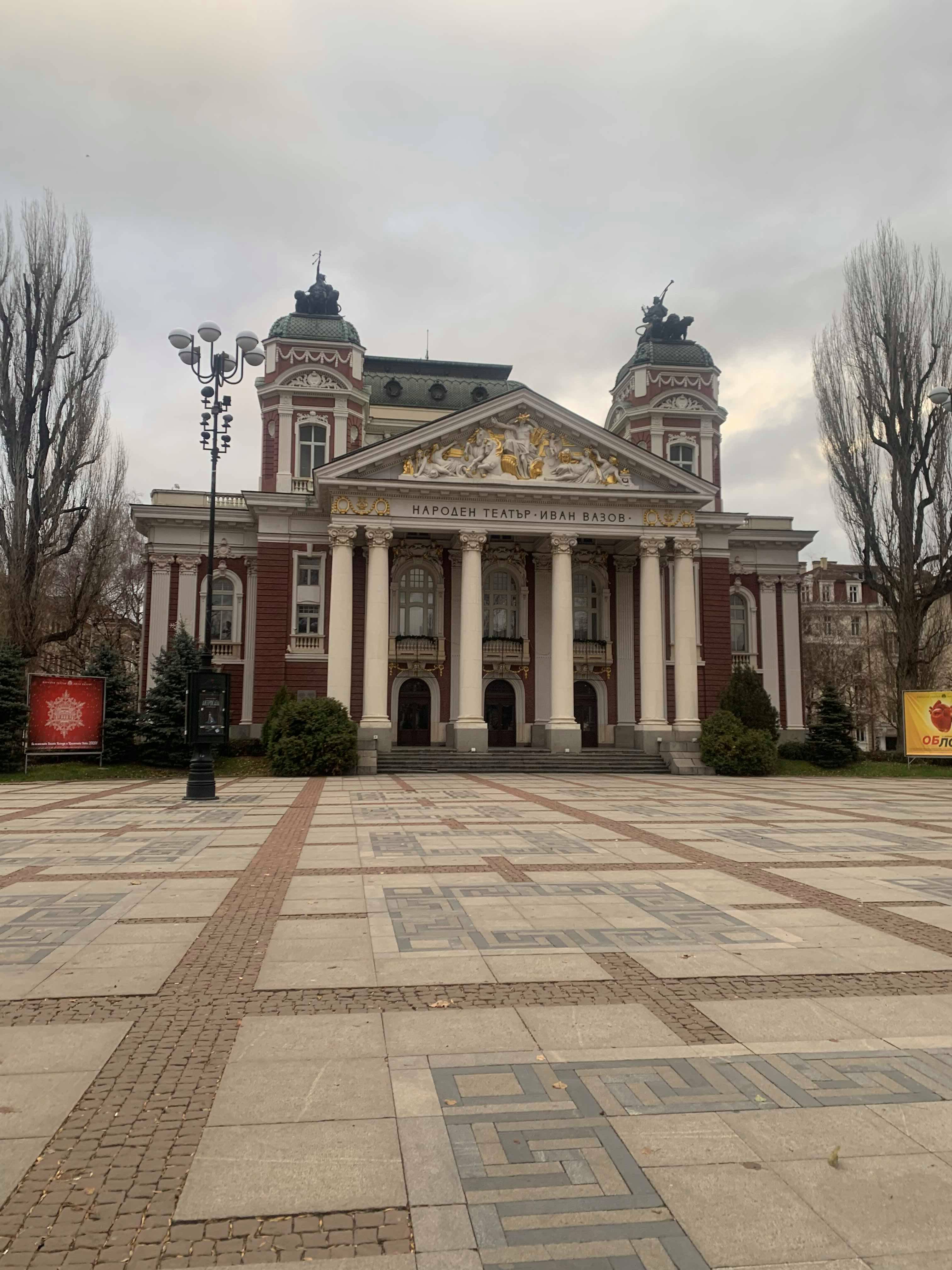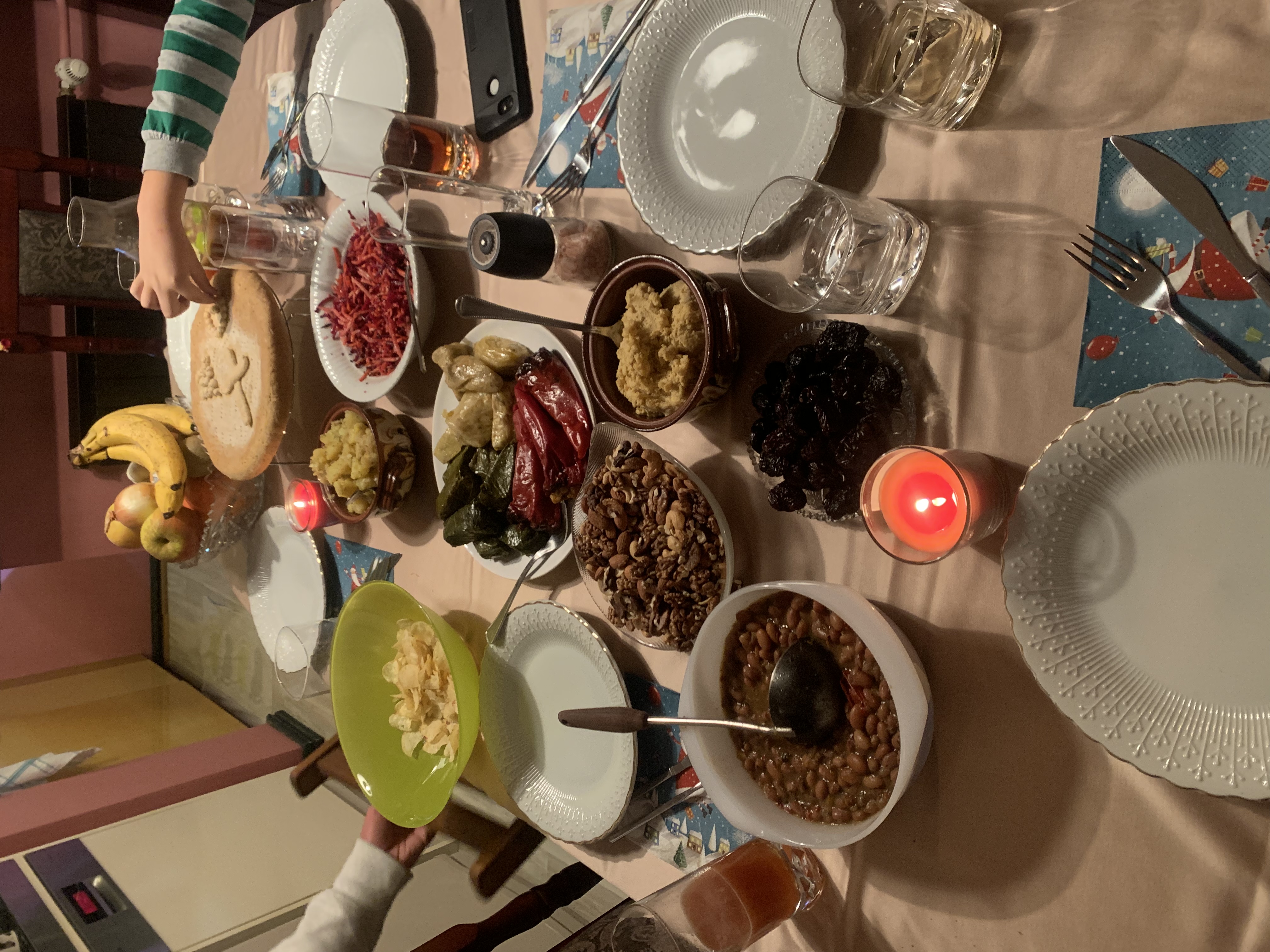Traveling to Bulgaria

Vacationing in Bulgaria can be one of the cheapest yet luxurious spots to travel to in Europe, while also not being in such a densely populated tourist trap. Bulgaria has it all, from ski resorts in the snow-covered mountains during the winter, to beautiful beaches along the Black Sea in the summer. Not only that, but Bulgaria is home to the oldest city in Europe, Plovdiv.
Although the capital is Sofia, the second-largest city in Bulgaria also happens to be the oldest city in Europe, which makes Bulgaria such a historically rich country. See the ancient Bulgarian architecture from up to two centuries ago while walking down the longest vehicle-free pedestrian street in Europe (5,740ft!). From a relatively recently discovered Roman theater discovered in the 1970s to the 24/7 nightlife designed to suit any type of traveler, Plovdiv is bursting with history and entertainment to satisfy all visitors.
Bulgarian National Theater in Sofia, Image Credit: Kayla Lopez
The second most visited city in Bulgaria, is, of course, the capital, Sofia. Filled with historical museums and art galleries, you’ll be able to learn about the country’s enriching past and present. Bulgarian student, Koina Stoyanova, admits that even just a little over 20 years ago, because of communism, there were not many foreigners at all which meant that almost nobody spoke English. Now anytime Stoyanova returns home to Sofia for the holidays, she is “amazed by how many people speak English and how many foreigners there are”. She also suggests that an absolute must-see in the capital has to be the Saint Sofia Church, which happens to be the oldest functioning church in Europe. After wandering the ancient streets with views of the snow-covered mountain tops, you can enjoy a typical Bulgarian dish called banitsa, which is a baked pastry with eggs, butter and Bulgarian cheese, that can be compared to feta cheese. This dish is eaten at any time of the day during any time of the year and it is eaten with kiselo mlyako, which is the Bulgarian word for yogurt. Many Bulgarian foods have a lot of greek influence with a slight twist to set them apart. Another typical food is eaten a lot are stuffed bell peppers and stuffed cabbage. The vegetable could be stuffed with things such as meat and rice and can be eaten for any occasion. These traditional foods are a must when visiting Bulgaria!
Homemade traditional Bulgarian food, Image Credit: Kayla Lopez
Visiting Bulgaria’s ski resorts in the winter is a great way to take advantage of the incredible mountain ranges they have at a much affordable price compared to other Western European mountains. At less than two hour drive from the capital, you can be in Borovets, one of the most popular ski resorts in the country. Situated on the northern slopes of the Rila Mountains, Borovets is not only accessible for beginners, but it also has a wide range of snow sports for any type of skier or snowboarder.
One of the most underrated summer vacation spots in Europe probably has to be Sunny Beach, Bulgaria, where luxury meets affordability. Sunny Beach borders the Black Sea and welcomes over 5 million tourists a year during the summer season. This resort town has become Bulgaria's fastest-growing resort capturing the attention of millions because of its unbelievably cheap hotels, bars, spas and much more. After interviewing AUP student, Tania Radkova, who is Bulgarian herself, she expresses how much tourism has increased all over Bulgaria after the fall of communism in 1995, and admits that Bulgarians, especially the younger generations, are very welcoming of foreigners.
Although she was too young to personally see the effects of her country transitioning to a democratic republic, Tania admits that the divide is pretty noticeable between older and younger generations. As the years progress and Bulgaria becomes more and more known and visited by tourists from all over the world, it also means that younger generation Bulgarians crave and are even encouraged to go out and explore the world, now that they have the ability to do so, unlike the older generations that grew up in communism. Since so many young Bulgarians leave Bulgaria to better their education, many do not return back because they enjoy the way of life so much better in the more western world, but Radkova recognizes that “Bulgaria really needs development and I think the younger generations are the ones that can make that happen if they attain the knowledge from outside and then go back and apply it”. This is why after completing her education and getting some work experience in western Europe, Radkova expresses that she wants to eventually settle in her home country after gaining enough experience abroad.
Now after learning about this beautiful country's diverse terrains and historical past, you should definitely add Bulgaria to your list of places to visit!



